The Death of the Donor Model and the Rise of Health Entrepreneurs
Donor fatigue is real, and Africa’s health sector is waking up. Meet the new generation of health entrepreneurs who are not waiting for handouts—they’re building businesses, not begging bowls.

"He who waits for a donor may wait until the termites eat the grant proposal." — African startup proverb (unofficial, but true)
It used to be simple: build a clinic, write a proposal, apply for a grant, repeat. For decades, Africa’s healthcare ecosystem lived on donor oxygen—USAID, Global Fund, DFID, BMGF. Like that one rich uncle who brings rice during Christmas, donors were dependable.
But, my friend, things are changing.
Today, a new kind of hero is rising: the African health entrepreneur. She doesn’t wait for funding. She finds a gap, creates a product, tests it with mama on the street, and charges just enough to keep lights on and grow.
The donor model isn’t just tired—it’s flatlining. Enter: innovation, frugality, and entrepreneurship with purpose.
Donor Dependency: A Love Story Turned Toxic
Let’s not pretend—donors helped. They brought ARVs, vaccines, mosquito nets, and more. But over time, the model started to creak:
-
Short funding cycles meant clinics died with expired grants.
-
Top-down solutions often ignored local wisdom.
-
Zero revenue planning created systems that collapsed once the money ran out.
As Kenyan economist James Shikwati famously said in The Spiegel, “For God’s sake, please just stop the aid” (The Spiegel, 2005). It shocked many. But look around today—he may have been ahead of his time.
From Handouts to Hustle: Health Startups Making Waves
1. Maisha Meds (Kenya, Nigeria, Tanzania)
Instead of waiting for donors to fix medicine stock-outs, Maisha Meds built a digital POS system for pharmacies. Now, 1,200+ chemists use it to track inventory, process mobile payments, and access drug subsidies sustainably.
2. Chefaa (Egypt)
An AI-powered platform delivering medication to patients’ doorsteps. Instead of waiting for public clinics to improve, they built a business model around convenience and trust.
3. Clafiya (Nigeria)
Offers affordable primary care through local nurses—on-demand. It’s like Uber, but instead of a car, a nurse shows up at your door with paracetamol and a BP monitor.
4. Dawi Clinics (Egypt)
A chain of private clinics offering consistent, tech-enabled care. They’re scaling healthcare with data and design, not dependency.
These founders aren’t waiting for conferences in Geneva to tell them what’s urgent. They’re solving the problems they grew up seeing—and getting paid for it (imagine that!).
But What About Equity, Access, Affordability?
Good question. Profit doesn’t mean people get left behind. In fact, donor funding rarely reached the last mile. Many of these startups are blending business with impact, using models like:
-
Cross-subsidisation: Richer clients pay more, subsidising the poor.
-
Freemium services: Basic care for free, extras for a fee.
-
Social franchise models: Replicating services across underserved regions.
“Even the chicken with no teeth knows to peck where the maize is.”
Translation: Africans are finding models that work locally and sustainably.
Why This Shift Matters
-
Sustainability: No more collapsing clinics once the money dries up.
-
Accountability: Customers complain louder than donors when things don’t work.
-
Local Innovation: Solutions are being built in Swahili, Hausa, Amharic—not just English.
-
Job Creation: Entrepreneurs employ people. Donors employ... consultants.
As the donor model withers, health entrepreneurship is blooming. We need policymakers, investors, and even NGOs to embrace this reality. Support social businesses. Invest in health startups. Offer regulatory pathways that make sense.
Anecdote from the Ground: The Donor Who Ghosted
One CHW-led clinic in Northern Ghana once relied on a €150,000 grant. Everything was shiny until Year 3, when the donor pulled out. The solar fridges stopped working. The water tank cracked. Nurses left. Meanwhile, a local nursepreneur nearby was offering maternal care via WhatsApp and charging ₵5 per consult. She’s now expanded to three villages.
You see the point?
Conclusion: Bye-Bye Donors, Hello Doers
We’re not saying kill donor aid. We’re saying stop worshipping it. Africa doesn’t lack ideas—it lacks systems that pay for ideas to live past pilot stage.
If you’re a young innovator reading this, remember: the new wealth in African healthcare isn’t in writing grant proposals. It’s in building things people want and can pay for.
“A man who hangs around the cooking pot will eventually learn to cook.” — Igbo proverb
It’s time to leave the donor kitchen. Let’s build our own.
References
Maisha Meds. (2024). Digitising African pharmacies. https://maishameds.org
Chefaa. (2024). Order your medication online. https://chefaa.com
Clafiya. (2024). Affordable primary healthcare at your doorstep. https://clafiya.com
Dawi Clinics. (2024). Integrated primary healthcare in Egypt. https://dawiclinics.com
The Spiegel. (2005, July 4). James Shikwati: For God’s Sake, Please Stop the Aid!. https://www.spiegel.de/international/spiegel/spiegel-interview-with-african-economist-james-shikwati-for-god-s-sake-please-stop-the-aid-a-363663.html
What's Your Reaction?
 Like
0
Like
0
 Dislike
0
Dislike
0
 Love
0
Love
0
 Funny
0
Funny
0
 Angry
0
Angry
0
 Sad
0
Sad
0
 Wow
0
Wow
0















































































